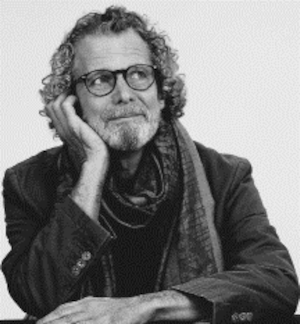Write what you (don’t!) know

Mark Twain famously said, “Write what you know.” But that advice didn’t resonate with this author, who explains why doing the exact opposite has worked for him.
by Bill Hemmig
All due respect to Mark Twain, but I seldom know fully what I’m writing about until I’ve finished a first draft. At least. Sometimes in author discussions I’m asked why I write fiction as opposed to, say, memoir. My response is that if I knew what I was getting into before I started to write a story, I’d never have the courage to begin. Call me a coward, but there you have it: direct, conscious self-examination, at least in writing, is not for me.
 I start with a character and an event, I throw the character into the event, and keep them going until it seems time to stop, without a care about what the thing is really all about. Only after the first draft do I look back, realize my real purpose in writing the thing in the first place, and then direct my revisions toward clarifying that purpose and maybe going deeper. It’s at that point that I say to myself, “Wow. If I’d known I was writing about that, I’d never have expressed it this well.” Or maybe at all.
I start with a character and an event, I throw the character into the event, and keep them going until it seems time to stop, without a care about what the thing is really all about. Only after the first draft do I look back, realize my real purpose in writing the thing in the first place, and then direct my revisions toward clarifying that purpose and maybe going deeper. It’s at that point that I say to myself, “Wow. If I’d known I was writing about that, I’d never have expressed it this well.” Or maybe at all.
Sometimes it’s well past the first draft when I fully figure out what I did. Occasionally, not until the thing’s published.
Books & Buzz Magazine is where writing pros spill their secrets! Subscribe now for free
My long-time partner passed away several years ago, and in one of the stories in my collection, Americana: Stories (Read Furiously, 2023), the main character, who’s recently lost his partner, is clearing out their house in preparation for selling it. I also wove into that narrative fictionalized memories, in the form of flashbacks, of my youthful days doing community theater, when the striking of the set (destruction, for you non-theater types) was a deeply emotional experience for the cast and crew after everything they went through together to get the production up and running. I thought these two events juxtaposed would complement and emotionally reinforce each other, and I was correct. But well after the collection was published, I looked at the story and I saw something I hadn’t seen before.
I start with a character and an event, throw the character into the event, and keep them going until it seems time to stop.
After my community theater days, I attempted to establish myself as a playwright in New York City. For several years I had a few productions, and success seemed possible, and then it all fizzled out and interest in my plays evaporated. Ever since, I’ve been—fairly or not—disenchanted and distrustful of the professional theater establishment (or I just wasn’t a very good playwright, but I choose not to believe that), which is one of the big reasons why I turned to short fiction. So now, looking at that story, I ask myself if, rather than using the flashbacks only to complement the present-day story, I was using the story to not only say goodbye to my partner, but to finally say goodbye to the theater, in all its emotionally rewarding aspects.
It would never have occurred to me to consciously write a valedictory to the theater, but there it is. So my advice to you is not to concern yourself with what you know—at least not at first. Just dive in there and write. Figure out what you did later, and then on to the hard part—revisions.
Bill Hemmig is the author of Americana: Stories and Brethren Hollow, both published by Read Furiously. His short stories appear in Read Furiously’s Life in the Garden State anthologies, The World Takes and Stay Salty, and in the Toho Publishing anthology The Best Short Stories of Philadelphia (2021). He has had stories published in the journals The Madison Review, Philadelphia Stories, and Children, Churches and Daddies (cc&d), and he is a three-time finalist in the New Millennium Writing Awards. By day he is dean of Learning Resources & Online Learning at Bucks County Community College in Pennsylvania.
Find Bill online on Instagram, Twitter/X and the Arts & Cultural Council of Bucks County website.